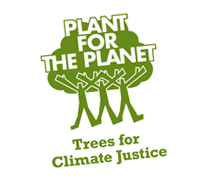Climate Change
Ans : Climate change refers to long-term shifts in global weather patterns and average temperatures.
Ans : Although the terms, ‘climate change’ and ‘global warming’ are used interchangeably, they are not synonymous with each other. Global warming refers to the long-term warming of our planet. Climate change encompasses global warming, but also includes rising sea levels, shrinking mountain glaciers, accelerating ice melts, and shifts in flower/plant blooming times.
Ans : Climate change is primarily driven by human activities, such as the burning of fossil fuels and deforestation, which release greenhouse gases into the atmosphere, leading to the trapping of heat and alterations in Earth's climate system.
Ans : Climate change can have a wide range of environmental impacts, including rising sea levels, more frequent and severe weather events, and disruptions to ecosystems and agriculture.
Ans : The best way to fight against climate change is to form a green habit. It could be anything; cycling to work instead of driving, buying sustainable clothes or thrifting instead of supporting fast fashion, or planting trees every month to offset your carbon footprint.





